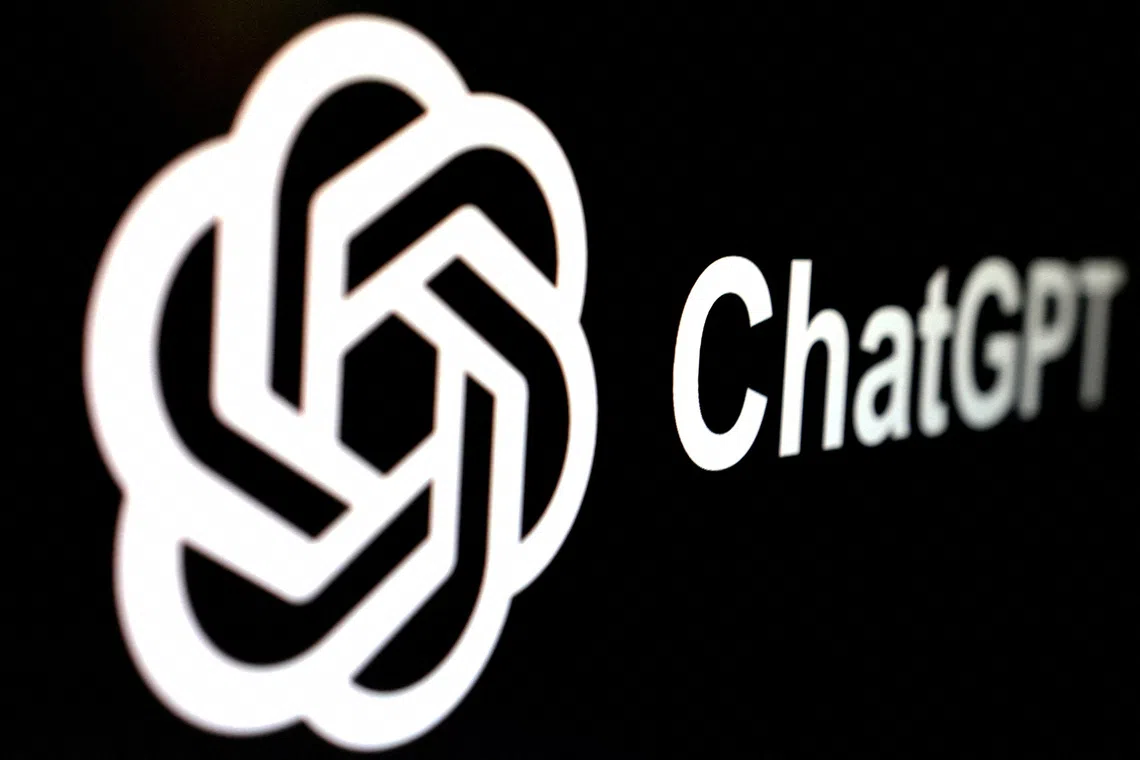1 in 10 retail investors using AI tools like ChatGPT to pick stocks: Report
Sign up now: Get ST's newsletters delivered to your inbox

A survey of 11,000 retail investors across the world found 13 per cent of them use AI tools like ChatGPT and Gemini to pick or alter investments..
PHOTO: REUTERS
Follow topic:
LONDON - As ChatGPT nears its third birthday, at least one in 10 retail investors is using a chatbot to pick stocks, fuelling a boom in the robo-advisory market, but even fans say it is a high-risk strategy that cannot replace traditional advisers just yet.
Thanks to artificial intelligence (AI), anyone can select stocks, monitor them and obtain investment analysis that was once available only to big banks or institutional investors.
The robo-advisory market – which includes all companies providing automated, algorithm-driven financial advice such as fintech, banks and wealth managers – is forecast to grow to US$470.9 billion (S$606.7 billion) in revenues in 2029 from US$61.75 billion in 2024, marking a roughly 600 per cent increase over five years, according to data analysis firm Research and Markets.
No access to information behind paywalls
Mr Jeremy Leung, who spent almost two decades analysing companies for UBS, has been using ChatGPT to chase stocks for his multi-asset portfolio since he lost his job at the Swiss bank earlier in 2025.
“I no longer have the luxury of a Bloomberg (terminal), or those kinds of market data services which are very, very expensive,” he said.
“Even the simple ChatGPT tool can do a lot and replicate a lot of the workflows that I used to do,” he added, cautioning that such a tool might, however, miss some crucial analyses as it cannot access data behind a paywall.
Mr Leung is not alone. The industry is growing fast and exponentially. About half of retail investors say they would use AI tools such as ChatGPT, whose launch in November 2022 ignited the AI boom on the markets, or Google’s Gemini to pick or alter investments in their portfolio, and 13 per cent of them already use these tools, according to a survey from broker eToro, which polled 11,000 retail investors across the world.
In Britain, 40 per cent of the respondents to a survey by comparative company Finder said they have used chatbots and AI for personal finance advice.
ChatGPT itself warns it should not be relied on for professional financial advice, and says its owner OpenAI has not released data on the number of people who use its chatbot to choose investments.
“AI models can be brilliant,” said Mr Dan Moczulski, UK managing director at eToro, which boasts 30 million users worldwide. “The risk comes when people treat generic models like ChatGPT or Gemini as crystal balls.”
Mr Moczulski said it is best to use AI-generated platforms specifically trained to analyse markets as “general AI models can misquote figures and dates, lean too hard on a pre-established narrative, and overly rely on past price action to attempt to predict the future”.
‘Use only credible sources’
Finder asked ChatGPT in March 2023 to select a basket of stocks from high-quality businesses, with criteria such as levels of debt, sustained growth and assets that generate an advantage over competitors.
The selection of 38 stocks, which includes AI poster child Nvidia and online retailer Amazon alongside consumer staples such as Procter & Gamble and Walmart, has surged nearly 55 per cent so far, almost 19 percentage points more than the average of Britain’s 10 most popular funds, including those managed by Vanguard, Fidelity, HSBC and Fundsmith.
Granted, US stocks are around record highs and, right now, seem invulnerable to erratic US policies and patchy economic data.
But stock picking using ChatGPT requires some financial knowledge and its adopters say there is a high risk of getting it wrong before getting it right.
Mr Leung creates prompts like “assume you’re a short analyst, what is the short thesis for this stock?” or “use only credible sources, such as SEC (Securities and Exchange Commission) filings”.
“The more context you provide, the better the responses,” he said.
The risks are big. The exuberance for the AI tool, which has democratised access to investment, means it is also impossible to tell if retail investors are using risk management tools to properly mitigate potential losses when the markets turn.
The pan-European Stoxx 600 index is up almost 10 per cent in 2025, the S&P 500 index has added 13 per cent after surging 23 per cent in 2024.
“If people get comfortable investing using AI and they’re making money, they may not be able to manage in a crisis or downturn,” Mr Leung said. REUTERS

